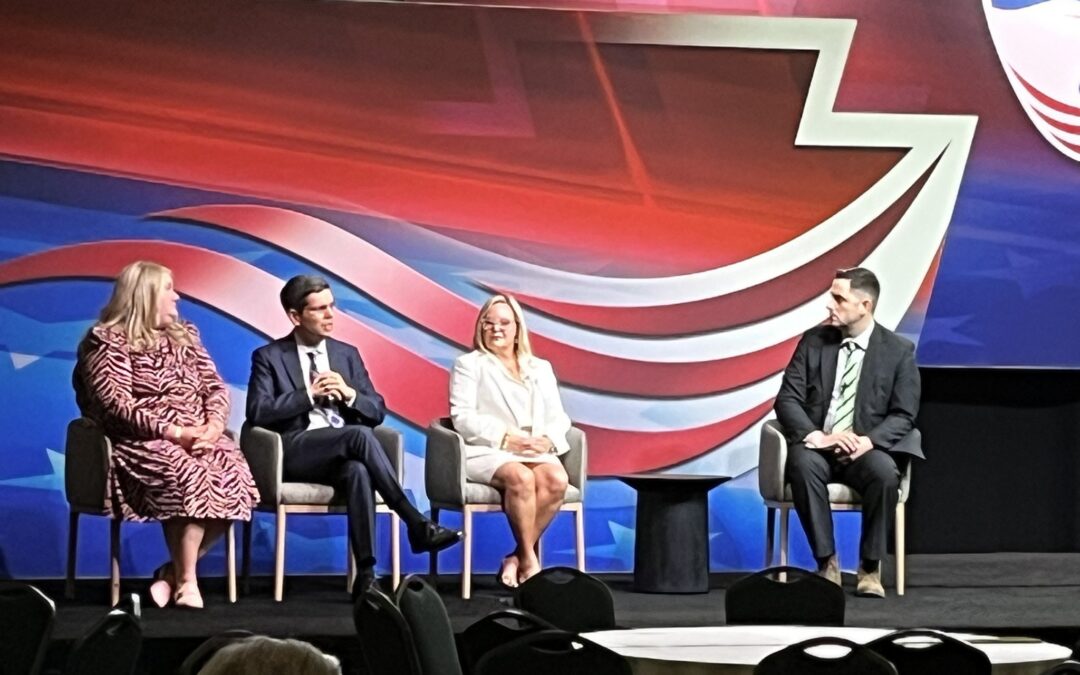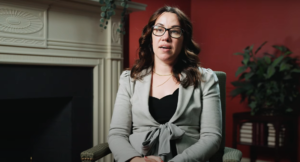At the 2025 Pennsylvania Leadership Conference, Chief Strategy Officer Dan Bartkowiak hosted a vital panel on protecting children from harmful medical interventions tied to gender ideology. Featuring Senator Judy Ward (R-Altoona), Dr. Kurt Miceli of Do No Harm, and Brianna Howard from the Independent Women’s Forum, the panel discussed medical ethics, personal stories, and legislative solutions in light of President Trump’s executive order prohibiting federal support for gender transition procedures on minors.
Below is an edited Q&A based on the live panel discussion.
Q: Dr. Miceli, can you help us understand the current state of medical and scientific evidence around gender dysphoria in children?
Dr. Kurt Miceli:
As a psychiatrist, it’s essential to approach patients with compassion, especially children experiencing gender dysphoria. These are deeply challenging times for them and their families. But to truly help, we must rely on sound medical evidence.
The United Kingdom’s Cass Review, as well as findings from Sweden and Finland, have all concluded that the evidence supporting puberty blockers, cross-sex hormones, and surgeries in adolescents is weak. These interventions often ignore underlying psychiatric conditions and can result in children becoming lifelong medical patients.
In contrast, the U.S. medical community has largely embraced WPATH’s Standards of Care—now in its eighth version—which has removed the requirement for psychiatric evaluations and lacks guardrails to protect vulnerable youth. Even data from an NIH-funded trial led by Dr. Johanna Olson-Kennedy revealed no benefit from puberty blockers, yet the findings were not published. That’s troubling.
The Dutch Protocol—often cited to support these treatments—was based on a small group of children very different from those being treated today. Today’s youth are more likely to suffer from rapid-onset gender dysphoria, often with a history of trauma or other psychiatric diagnoses.
Q: Senator Ward, how are you responding to these concerns in Pennsylvania?
Senator Judy Ward:
We have a duty to protect children. They’re confused, and so are their parents. I’ve introduced a bill that would prohibit any transition-related drugs or surgeries for anyone under 18. Just like we don’t allow minors to drink, smoke, or drive, we shouldn’t allow them to make irreversible medical decisions.
We’ve held rallies at the Capitol and worked with Do No Harm to raise awareness. When people learn what’s actually happening—like surgeries on minors at one of the top pediatric hospitals in the country—they are shocked. We must put a stop to it.
Q: Brianna, can you speak to the personal impact on the girls you work with? What are their stories telling us?
Brianna Howard:
At the Independent Women’s Forum, we focus on storytelling—amplifying the voices of young women harmed by gender ideology. Many of them were told by medical professionals that if they didn’t transition, they would commit suicide. That’s a lie.
I work closely with girls like Chloe Cole and Prisha Mosley. Prisha had a double mastectomy at 17 and was on testosterone. She later became pregnant, and the medical trauma from her past made the pregnancy extremely complicated. These are girls with deep emotional scars—often from sexual abuse, home trauma, or neglect. They turned to transition as a way to cope, but it only compounded their pain.
Q: You’ve traveled and seen these girls share their stories. How do they feel about legislation like the Do No Harm Act?
Brianna Howard:
They are its strongest supporters. They want justice. They don’t want anyone else to experience what they went through. These are not minor interventions—these are life-altering surgeries and drugs that strip children of their future. They support the legislation because they understand the stakes in a deeply personal way.
Q: Dr. Miceli, what’s happening with the so-called “standards of care” in the U.S. medical community?
Dr. Kurt Miceli:
WPATH’s eighth edition eliminated many protective standards. Where psychiatric evaluations were once standard, now any qualified provider can greenlight surgery or hormone treatment. That’s deeply troubling.
Medical societies like the American Academy of Pediatrics have echoed this ideology. Yet, between 2019 and 2023, more than 5,700 surgeries were performed on minors in the U.S. According to JAMA Pediatrics, 14 out of every 10,000 girls had been prescribed testosterone by age 18. For context, the incidence of Type 2 diabetes in that age group is 10 in 10,000.
We need real psychiatric care, full biopsychosocial evaluations, and open debate in the medical community. That’s why Do No Harm will be present at the upcoming American Psychiatric Association meeting—to bring light to this issue and advocate for reform.
Q: How can we offer true compassion to young people struggling with gender confusion?
Brianna Howard:
Compassion doesn’t mean affirming a lie. Kids need limits. Many of these young people are being misled online through platforms like TikTok and Tumblr. They’re looking for community, and predators are taking advantage of that.
The most compassionate thing is to let kids be kids—tell them the truth, set boundaries, and don’t let them become lifelong patients chasing an identity that won’t bring them peace.
Senator Judy Ward:
It’s critical to hear from those who’ve transitioned and now regret it. Their testimonies—medical, emotional, psychological—are powerful. They show that this isn’t a phase. It’s something that can destroy their future.
Brianna Howard:
Absolutely. Our documentary series Identity Crisis shares these stories—girls, families, parents—who’ve been told by professionals that their kids would kill themselves if they didn’t transition. It’s deeply manipulative. And we still don’t know the long-term effects of these interventions.
Dr. Kurt Miceli:
Dr. Miriam Grossman’s book Lost in TransNation offers helpful guidance on how to respond when your child brings up these issues. Parents should be cautious about which therapists they trust. Even something as seemingly small as using new pronouns in school is not neutral—it’s a step toward medical transition. True compassion means doing what’s right, not what’s easy.
Q: What can Pennsylvanians do to support the Do No Harm Act?
Senator Judy Ward:
Call your legislators—your House and Senate members—and tell them this issue matters to you. When we’re deciding how to vote, we look at our records of calls and emails. Make your voice heard. That’s how change happens.
Closing Thoughts – Dan Bartkowiak:
I think about my own son, whose heart surgery saved his life. He’ll never regret that. But the transgender kids we’ve heard about today? They were robbed of that chance to grow up, to heal, and to make decisions with a clear mind and a whole heart.
Every child deserves the opportunity to grow up healthy and whole. When a child is struggling with confusion, trauma, or mental health challenges, the last thing we should do is offer irreversible surgeries or experimental drugs as the solution. As we’ve heard from both medical experts and brave young women who’ve lived through this, what’s being called “gender-affirming care” is anything but compassionate. It’s creating permanent harm and turning vulnerable kids into lifelong medical patients. This issue is not about politics—it’s about protecting children from being used as pawns in a dangerous medical and ideological experiment. Whether it be in the Girl’s Softball league, or in your local school board meeting, we must all be bold enough to face the truth and courageous enough to act on it.
That’s why legislation like the Do No Harm Act is so important—and it’s why your voice matters. Call your legislators. Let’s not wait until more children are left regretting decisions they were never mature enough to make. We must do better. For their sake, and for the future of every child in our care, it’s time to stand up, speak out, and do no harm.




